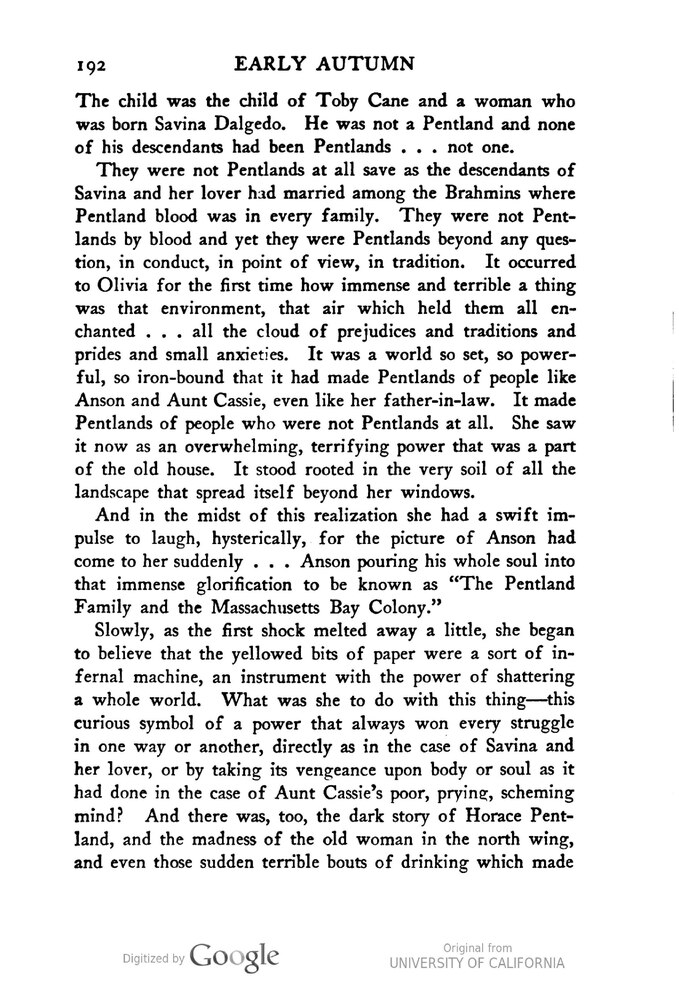The child was the child of Toby Cane and a woman who was born Savina Dalgedo. He was not a Pentland and none of his descendants had been Pentlands . . . not one.
They were not Pentlands at all save as the descendants of Savina and her lover had married among the Brahmins where Pentland blood was in every family. They were not Pentlands by blood and yet they were Pentlands beyond any question, in conduct, in point of view, in tradition. It occurred to Olivia for the first time how immense and terrible a thing was that environment, that air which held them all enchanted . . . all the cloud of prejudices and traditions and prides and small anxieties. It was a world so set, so powerful, so iron-bound that it had made Pentlands of people like Anson and Aunt Cassia, even like her father-in-law. It made Pentlands of people who were not Pentlands at all. She saw it now as an overwhelming, terrifying power that was a part of the old house. It stood rooted in the very soil of all the landscape that spread itself beyond her windows.
And in the midst of this realization she had a swift impulse to laugh, hysterically, for the picture of Anson had come to her suddenly . . . Anson pouring his whole soul into that immense glorification to be known as "The Pentland Family and the Massachusetts Bay Colony."
Slowly, as the first shock melted away a little, she began to believe that the yellowed bits of paper were a sort of infernal machine, an instrument with the power of shattering a whole world. What was she to do with this thing—this curious symbol of a power that always won every struggle in one way or another, directly as in the case of Savina and her lover, or by taking its vengeance upon body or soul as it had done in the case of Aunt Cassie's poor, prying, scheming mind? And there was, too, the dark story of Horace Pentland, and the madness of the old woman in the north wing, and even those sudden terrible bouts of drinking which made
